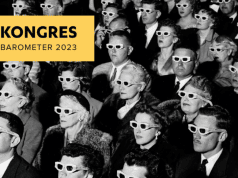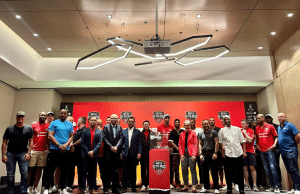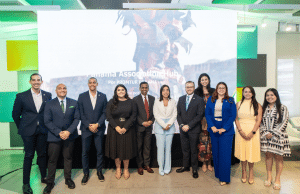The past few years have witnessed some paradigm changes for the meetings industry, moving the sector away from its close association with tourism and hospitality on the one hand while, at the same time, developing a much more strategic and professional approach to the management processes that underlie the organisation and measurement of meetings themselves. ‘Strategic Meetings Management’ and ‘Meeting Architecture’ are examples of new terms in the meetings industry lexicon, and the movements behind these have been paralleled by international initiatives to change the perceptions and profile of business meetings and events.
Rod Cameron of the Association Internationale des Palais de Congrès (AIPC), for example, urges that, in order to promote a better understanding of the meetings and business events industry, a number of issues needed to be addressed:
- “Firstly, we need to emphasise the role that meetings play in economic, professional and educational development and downplay the leisure aspect
- Secondly, we need to enhance both the content and perceived value of meetings in order to give planners and delegates the arguments they need to justify their investment of time and resources
- In particular, we need to put more emphasis on the ability to demonstrate measurable outcomes that will resonate with increasing corporate concerns about return on investment (ROI).”
He concludes: “The fact is, nobody holds a meeting in order to fill hotel rooms, that’s simply a by-product, and yet most of our current industry measures relate to what delegates spend, not what they actually accomplish. This trivialises meetings in the eyes of those who see them as engines for business and professional progress.” In other words, the meetings and events industry should be thought of as a key component in the global knowledge economy, rather than as a branch of tourism.
Strategic Meetings Management and Meeting Architecture
The meetings industry has reached a ‘tipping point’ in its evolution. Through the corporate trend toward Strategic Meetings Management (SMM) Programmes, the industry will ultimately differentiate based on value, or it will become a commodity that competes on price alone.
SMM provides direction to guide the strategy, operations and tactical activities of meetings and events in order to improve business processes, quality, and return on investment (ROI), and reduce costs, risks and inefficiencies. SMM Programs evolved from current global trends in business, both external and internal, to what might be called a customer economy. In a customer economy, an organisation or department must provide added-value solutions, not just a commodity or service, because the customer (whether an internal customer or an external one) has more options to replace that commodity or service than ever before. While cost may be a driver, provision of value is a differentiator. Businesses are refocusing on value, strategy and structural realignments to produce the most efficient supply chains.
Similarly, the Meeting Architecture movement aims to shift the primary focus away from hospitality and logistics towards ‘designing, executing and measuring meeting contents and formats that have a purposeful impact on participants’. By designing meetings to support Information, Networking and Motivation objectives, participant behaviour will, as a consequence, provide more value for stakeholders.
Trends among Meetings and Event Agencies
In the event agency community, changes in terminology (‘event management agencies’ or ‘engagement and communication agencies’? ‘incentive travel’ or ‘performance improvement agencies’?) epitomise the evolution taking place as it adapts to changing demands and expectations from its client base and a range of external drivers, from globalisation and consolidation to technology and social media, from economic and environmental issues to a myriad of other factors.
Clients are demanding greater transparency from agencies, often driven by procurement departments looking to maximise savings. But agencies are becoming more savvy about the business they are chasing and now need to understand the ethos of potential clients. The cost of pitching means that agencies are almost vetting clients to understand better the fit of tender opportunities with their own business. Charging models and complex contractual conditions have become key relationship issues with the potential to impact agency gross profit severely if wrong. Hence agencies are now more confident about saying ‘no thanks’ to the wrong type of new business opportunities.
Technology has radically changed the way logistics and event content can be delivered. Creating efficiencies of scale and resource, the many systems on the market offer a wide range of products. Clients want the latest technology, but not always because it adds value – perhaps just to make sure they are not left behind? For delegates, technology is so much a part of their daily lives, they expect it at events too. Meetings are being set up, sessions booked, presentations downloaded, twitter and blogs developed, creating ‘un-events’ around the event. When it comes to programme content, co-creation stimulates greater participation and engagement. And combining online technologies gives a greater customer relationship, so Twitter, Facebook, LinkedIn, YouTube etc. – apps & iPads – all are coming into play before, during and after events, and their use is increasingly expected by clients. The challenge and opportunity is for agencies to know which technology to harness to add to the delegate experience pre-, during and post-event.
I am optimistic about the future of our industry. There are some exciting opportunities ahead, but let’s keep a clear focus on the business benefits that meetings and conventions can deliver, and come up with some innovative approaches to spreading the word to the wider business and political communities.
Tony Rogers













